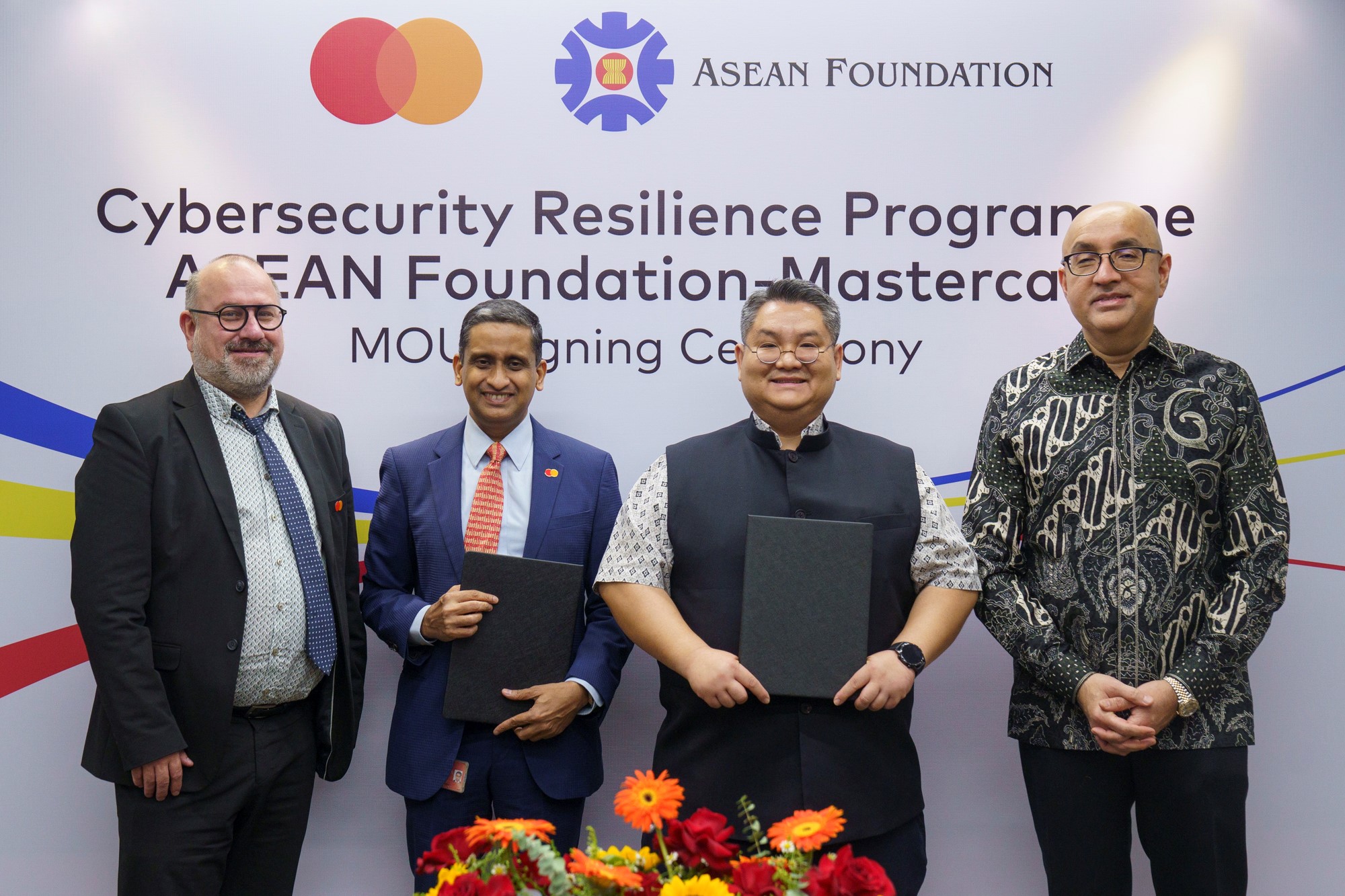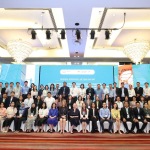Total number of posts 463.
Mastercard signed a Memorandum of Understanding (MoU) with the ASEAN Foundation an intergovernmental organization within the Association of Southeast Asian Nations (ASEAN) on 18 October 2024, with the aim of implementing initiatives to the cybersecurity capabilities of public sector entities and small and medium-sized enterprises (SMEs) of the Foundation's member countries.

Mastercard and ASEAN Foundation sign MoU to launch Cyber Resilience Program to bolster cybersecurity capacity across the region
About the organization:
The ASEAN Foundation — established at the 30th ASEAN Commemorative Summit — is a non-profit organization that acts as a support arm for community-building programs. As such, the foundation aims to promote greater understanding, awareness, engagement, and cultural inclusion among the people of ASEAN.
Mastercard is one of the contactless payments widely accepted in Southeast Asia. The partnership with global payments technology company Mastercard aims to promote cybersecurity in the region, which will benefit all economically and socially. By helping reduce the cybersecurity risk from digital payment, Mastercard will encourage the widespread adoption of contactless payments in the region. In turn, ASEAN benefits from a more financially literate and digitally savvy population, fostering greater economic inclusion and resilience across its member nations.
About the program contents:
As part of this collaboration called the ASEAN Foundation-Mastercard Cybersecurity Resilience Program, the parties will focus their efforts on three main pillars: raising awareness, providing skills and training, and improving capacity through technology and intelligence.
In the private sector, initiatives will be geared towards the region’s SMEs, which account for more than 97 percent of all businesses in the region and provide 85 percent of the employment1. Initiatives include: (i) Equipping SMEs to manage cyber incidents via the Mastercard Trust Center, an online self-service portal that provides free education, resources, and tools to support their cybersecurity journey; (ii) Enabling SMEs to identify vulnerabilities in their operations through Mastercard’s My Cyber Risk, a tool which allows businesses to pinpoint, prioritize and act on cybersecurity threats to digital infrastructure; (iii) Keeping SMEs up-to-date about emerging threats and issues through cybersecurity workshops and webinars, as well as industry events on cybersecurity-related topics.
In the public sector, the alliance will drive crucial activities to ensure its preparedness, including: (i) Running cybersecurity webinars specifically designed for the challenges faced by ASEAN governments, providing expertise on key issues for public sector professionals in cybersecurity related roles; (ii) Conducting crisis simulation exercises to identify the cyber readiness and resilience of organizational technologies and processes, and to highlight areas where capabilities can be strengthened; (iii) Developing research reports, providing risk assessment tools for ASEAN governments and fostering public-private dialogues and collaboration to fight fraud.
These initiatives are part of ASEAN’s ongoing efforts to enhance the region’s cybersecurity capabilities, cyber capacity-building, and cybercrime information-sharing for member states.
Satvinder Singh, Deputy Secretary-General of ASEAN for ASEAN Economic Community, said “Achieving ASEAN’s Digital Economy vision will involve enhanced regional integration to enable businesses to operate seamlessly while offering consumers efficient and secure digital services, including e-payments solutions. At the heart of this transformation lies the need to strengthen cyber resilience in the ever-evolving nature of cyber threats, which have become increasingly sophisticated and pervasive.” He then added “I would also like to commend Mastercard and the ASEAN Foundation for its leadership in spearheading the cybersecurity initiatives. Given Mastercard’s active role in cross-border payment solutions, which profoundly impact business and social activities globally, your cutting-edge financial and security innovations are indispensable to global and regional cyber resilience and digital trust.”
“The ASEAN Foundation-Mastercard Cybersecurity Resilience Program is a major step forward in strengthening our region's cybersecurity capabilities. As cyber threats grow more sophisticated, it’s crucial that we help our member states not only build stronger defenses but also enhance their ability to share critical information and collaborate across borders. This program empowers us to take a united approach, boosting both skills and resources, so we can tackle cyber challenges together. By working closely, we’re not just safeguarding our digital future but ensuring ASEAN remains competitive and resilient in the ever-evolving global cybersecurity landscape,” said Dr. Piti Srisangnam, Executive Director of ASEAN Foundation.
Southeast Asia has seen rapid expansion in its digital economy, with an annual compounded growth rate of 27 percent since 20212. While regional investment in cybersecurity has been growing 14 percent annually since 2021 and is expected to reach US$6.1 billion by 2026, these figures are insufficient to properly tackle the region’s fast-growing cybercrime, which saw an increase of 82 percent between 2021 and 2022. At the same time, SMEs are especially targeted by attackers who exploit weaker security measures in these smaller businesses. In Singapore, around 52 percent of all reported ransomware incidents in 2023 had impacted SMEs.
Source: MasterCard.














